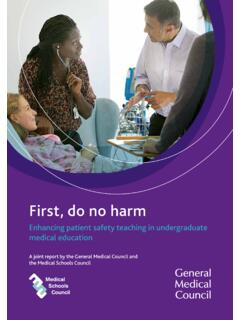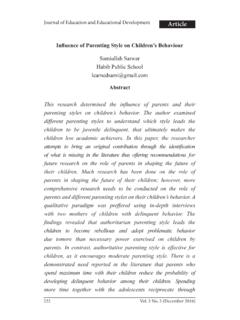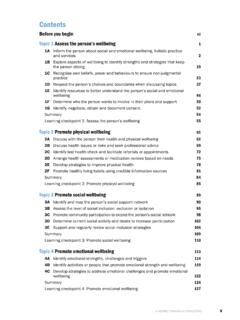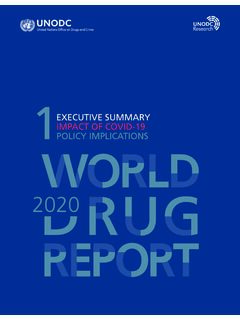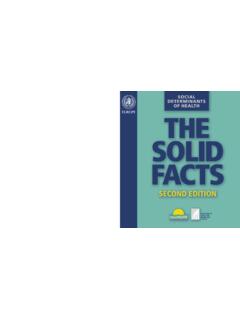Transcription of Good practice in prescribing and managing medicines and ...
1 01 You can fnd the latest version of this guidance on our website at References to Good medical practice updated in March 2013 Good practice in prescribing and managing medicines and devices 1 In Good medical practice (2013)1 we say: n 18 You must make good use of the n 12 You must keep up to date with, and resources available to you. follow, the law, our guidance and other n 19 Documents you make (including clinical regulations relevant to your work.)
2 Records) to formally record your work must n 14 You must recognise and work within the limits of your competence. be clear, accurate and legible. You should make records at the same time as the events you are recording or as soon as n 16 In providing clinical care you must: possible afterwards. a prescribe drugs or treatment, including n 21 Clinical records should include: repeat prescriptions, only when you have adequate knowledge of the a relevant clinical fndings patient s health, and are satisfed that the drugs or treatment serve the patient s needs.
3 B the decisions made and actions agreed, and who is making the decisions and agreeing the actions b provide effective treatments based on the best available evidence c the information given to patients f check that the care or treatment you provide for each patient is compatible d any drugs prescribed or other investigation or treatment with any other treatments the patient e who is making the record and when. is receiving, including (where possible) self-prescribed over-the-counter medications Withdrawn - 5 April 2021 Good practice in prescribing and managing medicines and devices About this guidance 2 This guidance provides more detailed advice on how to comply with these principles when prescribing and managing medicines and medical devices, including appliances.
4 3 You are responsible for the prescriptions you sign and for your decisions and actions when you supply and administer medicines and devices or authorise or instruct others to do so. You must be prepared to explain and justify your decisions and actions when prescribing , administering and managing medicines . 4 prescribing is used to describe many related activities, including supply of prescription only medicines , prescribing medicines , devices and dressings on the NHS and advising patients on the purchase of over the counter medicines and other remedies.
5 It may also be used to describe written information provided for patients (information prescriptions) or advice given. While some of this guidance is particularly relevant to prescription only medicines , you should follow it in relation to the other activities you undertake, so far as it is relevant and applicable. This guidance applies to medical devices as well as to medicines . 5 To maintain your licence to practise, you must demonstrate, through the revalidation process, that you work in line with the principles and values set out in this guidance.
6 Only serious or persistent failure to follow our guidance that poses a risk to patient safety or public trust in doctors will put your registration at risk. Keeping up to date and prescribing safely 6 Good medical practice says that you must recognise and work within the limits of your competence and that you must keep your knowledge and skills up to date. You must maintain and develop the knowledge and skills in pharmacology and therapeutics, as well as prescribing and medicines management, relevant to your role and prescribing practice .
7 7 You should make use of electronic and other systems that can improve the safety of your prescribing , for example by highlighting interactions and allergies and by ensuring consistency and compatibility of medicines prescribed, supplied and administered. The medicines and Healthcare Products Regulatory Agency s (MHRA) drug Safety Update and the NHS Central Alert System provide information and advice to support the safer use of medicines relevant to your practice and alert you to safety information about medicines you prescribe.
8 The National electronic Library for medicines has extensive information on the safe, effective and effcient use of medicines . The National prescribing Centre (now part of the National Institute for Health and Clinical Excellence (NICE)) publishes a range of materials to help you improve the safety and clinical and cost effectiveness of your prescribing . The electronic medicines Compendium lists Summaries of Product Characteristics and Patient Information Leafets. 8 If you are unsure about interactions or other aspects of prescribing and medicines management you should seek advice from experienced colleagues, including pharmacists, prescribing advisers and clinical pharmacologists.
9 9 You must be familiar with the guidance in the British National Formulary (BNF) and British National Formulary for Children (BNFC), which contain essential information to help you prescribe, monitor, supply, and administer medicines . 10 You should follow the advice in the BNF on prescription writing and make sure your prescriptions and orders are clear, in accordance with the relevant statutory requirements and include your name You should also consider including clinical indications3 on your prescriptions.
10 Withdrawn - 5 April 202102 Good practice in prescribing and managing medicines and devices 11 You should take account of the clinical guidelines published by the: a NICE (England) b Scottish medicines Consortium and Health Improvement Scotland (including the Scottish Intercollegiate Guidelines Network) (Scotland) c Department for Health, Social Services and Public Safety (Northern Ireland) d All-Wales medicines Strategy Group (Wales) e medical royal colleges and other authoritative sources of specialty specifc clinical guidelines.

